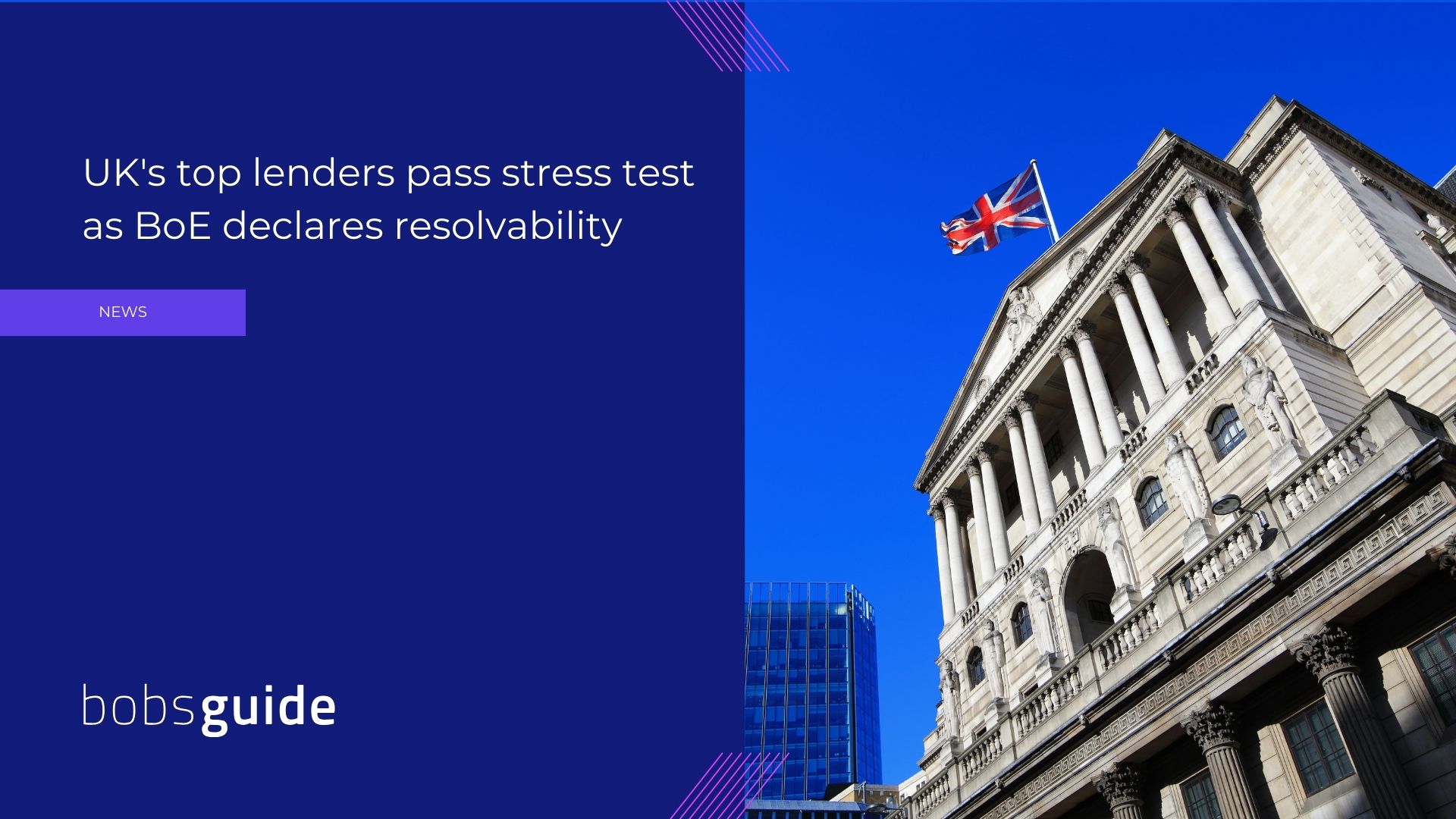World
UK’s top lenders pass stress test as BoE declares resolvability | bobsguide

Britain’s eight leading banks, including HSBC, Barclays, Lloyds and NatWest, could be dismantled in a crisis without taxpayer bailouts, the Bank of England confirmed on Tuesday following its second ‘resolvability’ check for lenders.
The Bank of England (BoE) announced today, 6 August, that the country’s eight largest banks, including HSBC, Barclays, Lloyds, and NatWest, can now be safely wound down without recourse to taxpayer bailouts.
The central bank’s declaration follows the completion of its second ‘resolvability’ assessment, a stringent examination designed to ensure that these financial behemoths can be dismantled without triggering systemic instability.
The concept of ‘resolvability’ gained prominence in the aftermath of the 2007-09 global financial crisis, when several banks required government bailouts to prevent economic collapse. The BoE’s latest findings offer compelling evidence that the UK banking system is now resilient enough to withstand the failure of a major financial institution without destabilising the wider economy.
“Our assessment gives further reassurance that if a major UK bank were to fail today it could enter resolution safely: remaining open and continuing to provide vital banking services, with shareholders and investors – not public funds – first in line to bear the costs of failure,” the BoE said in a statement.
The central bank attributed this progress to the implementation of new global ‘resolution’ regulations, which have compelled banks to develop robust plans for orderly wind-down in the event of insolvency.
BoE’s green light – most UK banks well-prepared for crisis
The resolvability check is a comprehensive evaluation designed to ensure that major financial institutions can be wound down in a crisis without destabilising the financial system or requiring taxpayer bailouts. This year’s assessment included the top eight banks in the UK: HSBC, Barclays, Nationwide, Lloyds, NatWest, Santander UK, Standard Chartered, and Virgin Money UK.
The BoE’s assessment found that all eight banks have made significant progress in their resolution planning. The central bank identified some “shortcomings” and areas for “further enhancement,” but none were deemed serious enough to impede the resolution process.
Standard Chartered was the only bank with a notable shortcoming related to its restructuring planning capabilities. The BoE expects Standard Chartered to address this issue promptly and will closely monitor its progress.
Barclays, HSBC, Lloyds, and Virgin Money were advised to enhance certain aspects of their resolution plans. These enhancements are aimed at ensuring that these banks can effectively manage a crisis without resorting to public funds. Nationwide, NatWest, and Santander UK had no material issues, reflecting their robust resolution capabilities.
Cross-border ‘resolvability’ lessons
The BoE’s resolvability check aligns with new global “resolution” rules introduced to ensure that banks have credible plans for dealing with potential collapses. These rules were put to the test last year when Switzerland forced UBS to take over the struggling Credit Suisse, supported by a 100 billion-Swiss franc central bank loan. Similarly, the BoE had to step in to resolve Silicon Valley Bank’s UK subsidiary after the collapse of its U.S. parent bank.
BoE Deputy Governor Dave Ramsden emphasised that “resolvability will never be done,” indicating that continuous improvements and lessons from real-world applications are essential.
Given the significant progress since the first test, the BoE has postponed the next check to 2026-27, allowing banks more time to refine their resolution plans.
After rate cuts, resolvability ensures stability
Just a few days before the resolvability check announcement, on August 2, the Bank of England made a significant policy shift by cutting its base interest rate by 0.25% to 5%. This marked the first reduction in over four years and was a direct response to easing inflationary pressures and economic uncertainties.
The immediate impact of the rate cut has been felt most acutely in the housing market. Major lenders, including NatWest, TSB, Nationwide, and Virgin Money, swiftly responded by lowering their mortgage rates. Some fixed-rate deals now sit below 5%, offering substantial savings to homeowners. Those on tracker mortgages, directly linked to the BoE base rate, have already benefited from cheaper borrowing costs.
Beyond the housing market, the rate cut has broader implications for the UK economy. High street banks, such as HSBC, Santander, and Nationwide, have also reduced borrowing costs for consumers, potentially easing financial pressures on households. With the BoE signalling that further rate hikes are unlikely, there is growing optimism among homeowners and buyers that mortgage costs will continue to decline.
This combination of factors – lower mortgage rates, increased affordability, and greater economic certainty – is expected to stimulate the housing market and provide a much-needed boost to consumer confidence.










